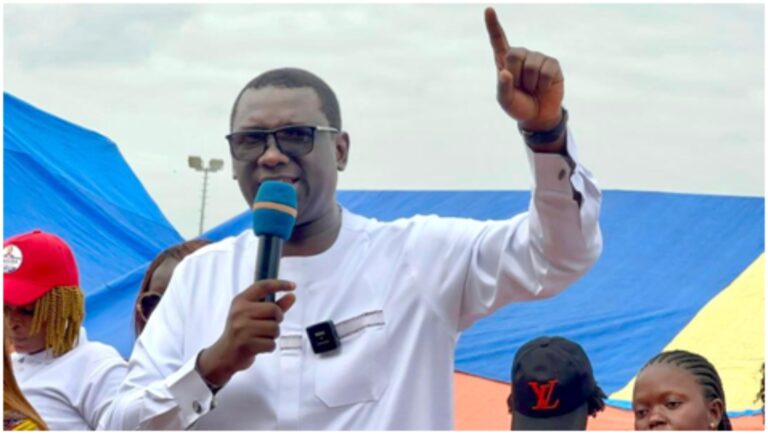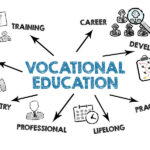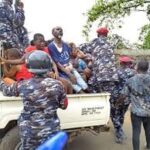By Pa Baimba Sesay
In recent times, the idea of “power sharing” has resurfaced in Sierra Leone’s political discourse, promoted as a way to resolve disputes, prevent conflict, or maintain peace. But why now? And more importantly, why would a government on the brink of reelection be the one championing such a proposal? Is this a sign of things to come? Who knows. What we do know is that the people’s power is felt most forcefully during elections. And as the saying goes: nothing lasts forever. But let us have the conversation.
Proponents of this idea argue that dividing political authority among rival factions or parties can stabilise the country. This is a deeply flawed proposition. In reality, it is a slippery slope back to a one-party state, erasing the hard-won democratic gains we have struggled for. It must be rejected outright, dead on arrival. The very thought of it is a stain on our collective conscience and a betrayal of the people’s trust. It deserves not accommodation, but outright dismissal.
Let this sink: at its core, democracy is about choice and accountability. For more than two decades, Sierra Leoneans have gone to the polls to decide who governs. Those who win are entrusted with a mandate to lead. Those who lose step aside, regroup, and prepare to contest again. This alternation of power is not a flaw of democracy, it is its very lifeblood. To promote power sharing as an alternative is to chip away at that lifeblood. Worse still, it dilutes multiparty competition, turning elections into hollow and unthinkable rituals. If every party is guaranteed a seat at the table regardless of electoral outcome, then what meaning does the people’s vote hold? None. What does this hold for democracy? Zero! It also means the sovereignty of the people is undermined, and democracy itself is reduced to a façade.
Democracy thrives on accountability. Voters must be able to reward or punish leaders based on performance. When leaders fail, they should face the consequences at the ballot box. From 2018 through to 2028, Sierra Leoneans must continue to enjoy their right to decide who manages the affairs of the state. But when all major actors are bound into a grand coalition, accountability collapses. Citizens are left asking: who do we hold responsible when everyone is in power?
History offers enough lessons. In Kenya, the 2008 power-sharing arrangement ended bloodshed but left behind bloated government, policy paralysis, and widespread patronage. Lebanon’s confessional system of power sharing has locked the country into endless cycles of crisis and dysfunction. The 2008 disputed election in Zimbabwe is another example where a Government of National Unity was formed between ZANU-PF and the opposition MDC. However, ZANU-PF retained control of key ministries, and the coalition failed to curb authoritarian practices. Real power remained concentrated in the ruling party, while the opposition’s influence was minimal, ultimately consolidating ZANU-PF’s dominance rather than fostering genuine power-sharing or democratic accountability. And here in Sierra Leone, the Lomé Peace Accord of 1999 stands as a cautionary tale. By granting the Revolutionary United Front (RUF) positions in government, including control over diamond resources, the agreement handed legitimacy to actors who had no commitment to democracy. Instead of peace, Sierra Leone got more violence, deepened mistrust, and prolonged suffering.
The lesson is clear: elite bargains cannot substitute for democratic legitimacy. If you have risked the people, be ready to face them and give account. What we need is not power sharing, but stronger democratic institutions like: independent courts to fairly resolve disputes, a credible electoral commission to ensure free and fair contests, not one where a commissioner seeks only the interest of the ruling elite, an environment with an unwavering respect for constitutional term limits and the rule of law. Above, there should be space for a loyal opposition to operate, criticise, and prepare to govern when its time comes.
Democracy is not easy. It is messy, noisy, and contentious. To be in opposition is difficult, and to govern is demanding. But this is precisely how democracy works. If you enjoy the trappings of power today, you must also accept the possibility of opposition tomorrow. That alternation is what keeps democracy alive. Power sharing undermines the fundamental principle of majority rule without securing meaningful minority protections. If every election ends in compromise regardless of the outcome, then citizens are robbed of their sovereignty.
Let us be clear: the push for power sharing in Sierra Leone today is not about peace or bringing people together. It is about entrenchment, about clinging to power even when the people have voted you out. It is also about killing other political parties. Plain and simple. It is a dangerous illusion, and ultimately a pathway back to a one-party state.







Cities’ message to world leaders: Unlock direct climate finance for Africa’s urban future